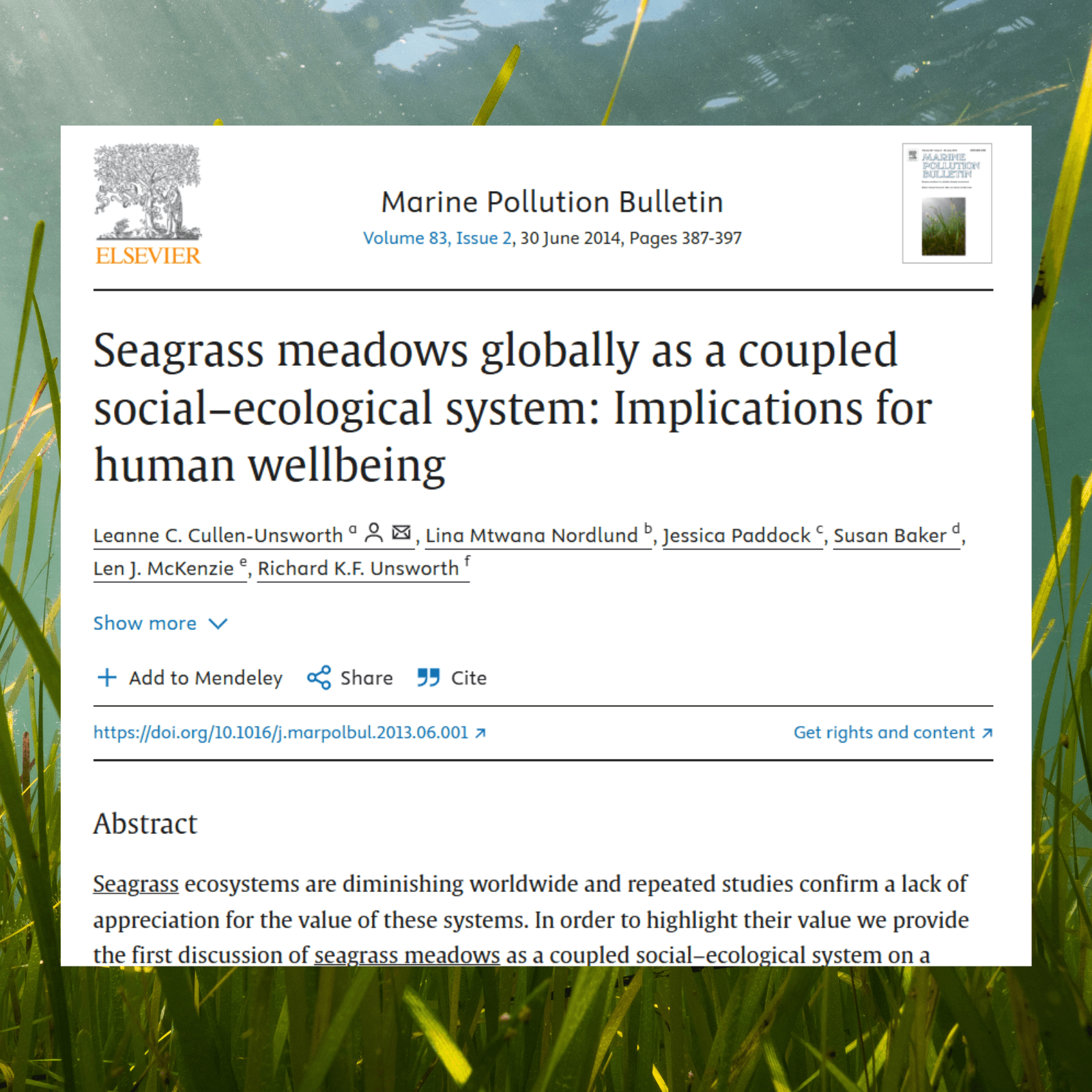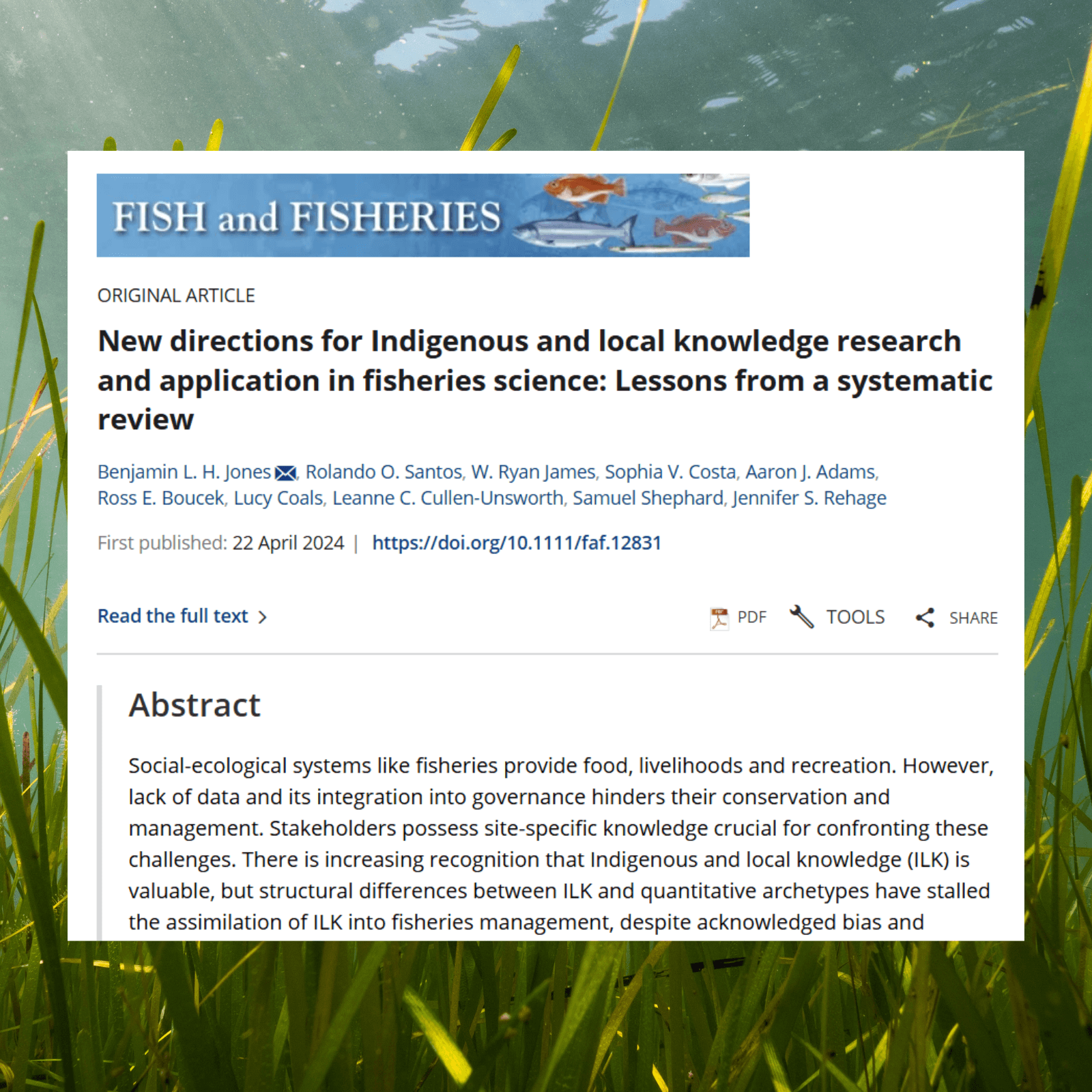Project Seagrass Journal Club: October 2024

We have just launched a journal club for the Project Seagrass team. These monthly meetups work much like a book club, members of the team each suggest a relevant scientific paper, vote on their favourite, then read the winning paper prior to meeting. During the journal club we critically discuss the paper and analyse how it relates to our own research. Seagrass science is continually evolving, with researchers across the globe constantly pushing the boundaries of our understanding of how these dynamic ecosystems function and work. This journal club helps us keep abreast of new research, and as it’s held online keeps our team connected across our UK sites. We launched this month with a paper integral to the core values of Project Seagrass: research, community and action. Seagrass meadows globally as a coupled social–ecological system: Implications for human wellbeing, published in 2013 by our CEO, Dr Leanne Cullen-Unsworth and our Chief Scientific Officer, Dr Richard Unsworth, among others. Using this paper to launch Journal club allowed the team to focus on factors influencing the development of Project Seagrass, and to reflect on how our current work aligns with these. The paper describes 7 globally spread case studies highlighting the intricate and dynamic relationship between seagrass and humans, to demonstrate the importance of a social-ecological approach in the field. One reoccurring finding highlights the role of seagrass as a foundation marine species, and nursery ground as vital to subsistence fisheries (fishing for direct community nutrition). Practices such as gleaning (small scale collection of invertebrates from the intertidal using simple gear), and artisanal fin fishing were found key in providing food security and wellbeing for coastal communities, with the highlighted case studies evidencing seagrass decline. The human dependence on seagrass highlights the importance in understanding the associated decline in communities’ capacities for resilience when facing environmental changes. By viewing seagrass meadows as a coupled social-ecological system, projects can carve pathways supporting resilience for both seagrass and people, which in turn support each other. Discussions focussed on a ‘knock before you enter’ approach, and the importance of carrying out stakeholder mapping and social science research to understand complex linkages. This knowledge coupled with ecological site assessments allows conservation and restoration efforts to align with local needs, ensuring social and ecological resilience into the future for seagrass projects. You can access the paper at this link to explore the findings in more depth. Our next journal club meets on the 5th of November, we look forward to sharing the paper and our thoughts on it then. Explore our blog for insights on the latest research from across the globe. Click here
Indigenous and Local Knowledge in Fisheries Science

Seagrass meadows play a critical role in keeping our oceans healthy and stocked with food, providing valuable nursery habitat to over 1/5th of the world’s largest 25 fisheries. Seagrass meadows are also important to small-scale fisheries, particularly as a place to find and collect a reliable source of food with some countries (e.g., Indonesia) seeing up to 60% of coastal populations dependant on seagrass for access to food. However, fisheries are more than just sources of food—they are also lifelines for millions of people worldwide, underpinning livelihoods, culture, and well-being. Yet despite their important role, managing these resources, especially in the face of climate change and overfishing, is becoming harder due to a lack of solid data. This is where Indigenous and Local Knowledge (ILK) could support Fisheries Science. A recent study undertaken by Project Seagrass systematically reviewed 397 fisheries-related research articles and revealed that Indigenous and local communities hold key insights into the ecosystems they live in. Indigenous and local communities have often been fishing in their local areas for generations and possess detailed knowledge about species behaviour, habitats, and environmental changes which could fill significant gaps in formal scientific research. The Problem: Gaps Between Indigenous and Local Knowledge and Scientific KnowledgeWhile the scientific community acknowledges the importance of ILK, a large challenge remains: ILK is largely qualitative, based on observations and traditions, whereas fisheries management is based on quantitative data—numbers, charts, and models. Despite efforts to utilise information from scientific knowledge and ILK, the integration has been slow with many studies still viewing ILK as something that needs to be validated through scientific data. The Solution: A New Approach to Fisheries Research The research highlights the need for more collaborative methods to enhance Fisheries Management by integrating ILK and scientific knowledge. Rather than simply comparing Indigenous and Local Knowledge to scientific data, we should view these knowledge systems as complementary. ILK can inform fish population trends, help establish marine protected areas, and guide sustainable fishing practices with a greater chance of success. What’s Next? Moving Towards Integrated Fisheries Management It is crucial to respect both Indigenous and Local Knowledge and scientific knowledge as equally valid. By intertwining these knowledge systems, we can build a more holistic and effective approach to fisheries management, ensuring that the voices of Indigenous and local communities are heard and their knowledge utilized. The next wave of fisheries science should aim to bridge the gap between data-driven science and the rich, qualitative insights from those who know the waters best. The future of sustainable fisheries management depends on it. More information: Jones et al, New directions for Indigenous and local knowledge research and application in fisheries science: Lessons from a systematic review. Fish and Fisheries (2024) DOI: https://doi.org/10.1111/faf.12831 Explore our blog for insights on the latest research from across the globe. Click here


